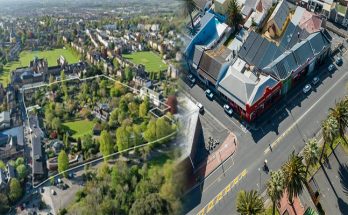If you’re looking for a way to invest your money, commercial real estate is an excellent option. It’s easy to understand and has a low barrier to entry, but can still produce good returns.
Here are some tips on how to make money in commercial real estate:
Spotting undervalued properties
To find undervalued properties, you must first be aware of the market. The two most important factors are location and demand.
- If a property is in high demand, it’s likely to be priced higher than its actual value. For example, if you buy a house in a trendy neighborhood that has been experiencing rapid growth over the past few years but hasn’t yet hit its peak price point, then selling this house could net you a profit if done correctly–even though it may not be worth as much as other houses in more expensive areas of town.
- Similarly, if there are only three units left on an apartment building where all other units have long leases (or no leases at all), then those three apartments might be worth more than all others combined simply because they’re harder to come by and thus have less competition from renters who want them!
Finding a local broker you can trust
Finding a local broker is one of the most important steps in building your commercial real estate business. A good local broker will be able to help you find and purchase properties, negotiate on your behalf and advise you on how to keep costs low while maximizing profits. They’ll also know the market inside out so they can recommend which properties are worth buying in any given area.
It’s important to note that not all brokers are created equal; some may not have as much experience or knowledge as others when it comes to investing in commercial property (or any type of investment). As such, it pays off big time if you can find someone who has been working in this field for many years – these types of professionals tend not only know how things work but also have connections with other industry experts who can assist them too!
Doing your due diligence on the property
Before you buy, you’ll want to do your due diligence on the property. This means looking at comparable sales data and making sure that it’s not overpriced. You can also look at the property’s history, such as previous maintenance records, or even current financials if they’re available.
Get pre-approved for financing
To get a pre-approval for financing, you’ll need to provide the lender with proof of your income and other financial information. The lender will also want documentation on any debts you have, so be sure to include any relevant information when you apply for the loan.
Once they approve your application, they’ll issue you a letter stating that they’re willing to lend money based on the terms outlined in your contract (including interest rate). This letter is called a pre-approval letter because it’s issued before the closing process begins–and even before an offer has been made on the property!
Making an offer
When making an offer, it’s important to know what the market value of the property is. You can find this information by looking at recent sales in that area and comparing similar properties.
You also need to know what competition there will be for this particular property and how much they’re willing to pay for it. If you have a firm understanding of what others are offering on similar properties, then yours will stand out as being more attractive than theirs by comparison.
Additionally, before submitting any offers for commercial real estate investments (or any other type), make sure that:
- Your offer clearly states what financing options are available and how much money those options will cover;
- You understand exactly what type(s) of business would work best within each building space offered up;
- You’ve taken into account all associated costs like taxes/insurance/utilities when determining whether or not acquiring certain pieces should be pursued further down road after initial purchase date has passed
Negotiate and close the deal.
Once you have found the building, it’s time to negotiate and close the deal. In order to purchase a property, you will need to get a mortgage. This means that you will need to pay closing costs on top of your down payment. These fees include:
- Property taxes
- Insurance premiums (property and liability)
- Maintenance costs (elevator maintenance, trash removal)
The key to making money in commercial real estate is finding the right place at the right price
The key to making money in commercial real estate is finding the right place at the right price. Finding that perfect property is a matter of doing your research and knowing what to look for, which we’ll cover shortly. You also need to find a broker who can help you navigate the process from beginning to end–and not all brokers are created equal!
Finally, once you’ve found your dream building and put together an offer that will get accepted by its owner/seller (which may require some negotiation), there are still more steps before closing day: getting pre-approved for financing; making sure your lender has reviewed all documents related to financing; arranging inspections of any properties being purchased; obtaining title insurance on any properties being bought; etcetera…
If you’re looking for a way to invest your money and make more, commercial real estate can be an excellent option. It’s not as volatile as the stock market and offers long-term returns on your investment that even beat inflation. But before jumping into any deal, it’s important to do your research and find a broker who knows what they’re doing so that you don’t get taken advantage of by dishonest brokers or unscrupulous sellers who want quick cash out of their property without regard for its true value.





